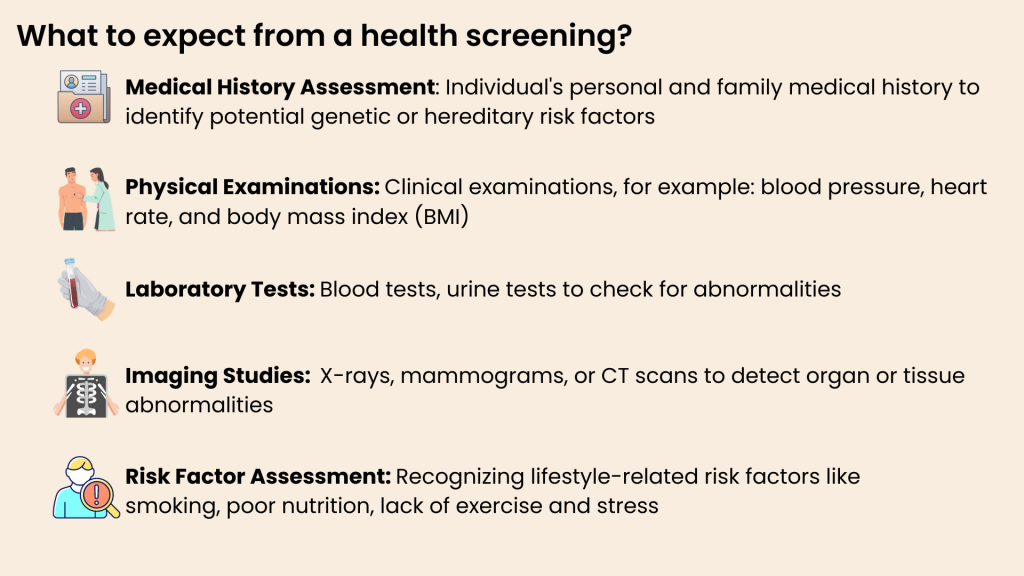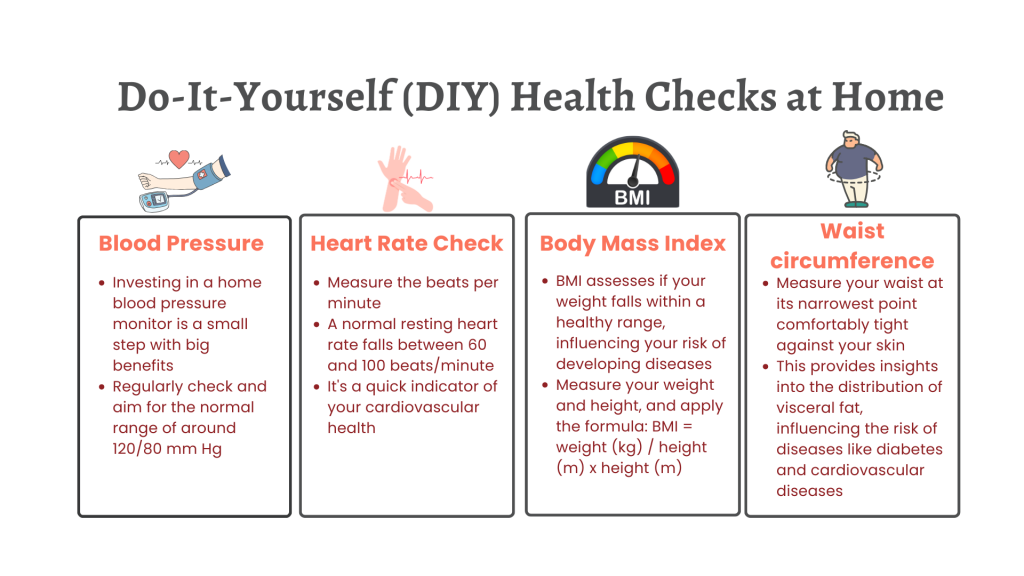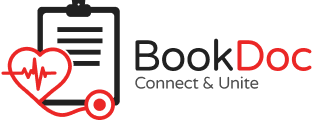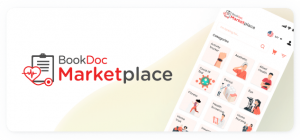
As a new year begins, the significance of prioritising our well-being has never been more important. In the pursuit of a healthier tomorrow, understanding the fundamental aspects of health screening becomes essential. What exactly is health screening, and why does it matter? Join us as we delve into the essentials of Health Screening 101, unravelling the mysteries behind this proactive approach to health management!
What is health screening?
Health screenings often involve a series of tests or assessments to evaluate a person’s overall health status and identify any potential issues that may require further investigation or management, making it a very effective way to detect potential diseases or medical conditions.
The specific components of a health screening can vary depending on the test and individual risk factors. Nevertheless, here’s what you may generally expect from a health screening session:

Why health screening matters?
- Identification of asymptomatic diseases and swift medical Intervention: Health screenings can identify diseases that may not show any symptoms, enabling early intervention and leading to more effective treatment plans and improved health outcomes.
- Preventive measures based on age and family history: The risk of developing certain diseases increases with age and family history. Therefore, health screenings are vital, especially for individuals with a family history of certain conditions, as they serve as essential preventive measures to address these heightened risks.
- Addressing late-stage diagnoses: According to the National Cancer Institute of Malaysia, a significant number of breast cancer (47.9%) and colorectal cancer (72.4%) cases in Malaysia are diagnosed at late stages. These statistics highlight the crucial need for early disease screening.
- Cost-effectiveness: Detecting health issues in their early stages through screenings allows for more time to make cost-effective interventions. Timely identification often leads to simpler and less expensive treatment plans compared to addressing advanced stages of diseases.
How often are we encouraged to undergo health screenings?
| Age Group | Frequency of screenings |
| 19-21 years old | Every 2-3 years |
| 22-64 years old | Every 1-3 years |
| Over 65 years old | Once/year |
| Additionally for women Breast cancer screening
Cervical cancer risk (HPV)
|
Once/month Once/2 years
Once/3 years
|
*Note: These recommended schedules are not fixed and may change following an initial examination by your physician
*Note: See here for more information on other health screening components
Do-It-Yourself (DIY) Health Checks at home
Taking charge of your health doesn’t always require a trip to the doctor’s office. There are simple DIY health screening parameters you can monitor at home to stay on top of your well-being. Here’s a quick guide to get you started:
 *Note: After measuring your BMI and waist circumference, you can refer here to interpret and understand your results.
*Note: After measuring your BMI and waist circumference, you can refer here to interpret and understand your results.
Health screenings are beneficial, emphasising early detection for quick interventions and improved outcomes by proactively addressing potential health threats before symptoms show. Customised screenings consider individual risk factors, aiding in the recognition and management of specific health concerns. Additionally, DIY health monitoring empowers proactive self-management, providing a convenient approach to personal well-being. Furthermore, seeking professional consultation post-screening ensures a thorough understanding and informed decision-making process.
Looking for a general practitioner to ask more about health? Explore our platform to connect with seasoned general practitioners who can address your concerns and offer personalised recommendations here.
Jonathan, Dietetics Intern
References:
- 7 health screening tests every woman should do. Health pulse, Pantai Hospital. Retrieved from: https://www.pantai.com.my/health-pulse/women-health-screening-tests
- Your Guide to Health Screenings by Age. University Hospitals. Retrieved from: https://www.uhhospitals.org/services/primary-care/routine-care/your-guide-to-health-screenings-by-age
- Ministry of Health Malaysia. Summary of Malaysia National Cancer Registry Report 2012-2016. Retrieved from: https://www.moh.gov.my/moh/resources/Penerbitan/Laporan/Umum/2012-2016%20(MNCRR)/Summary_MNCR_2012-2016_-_06112020.pdf













